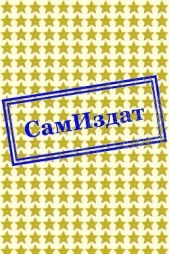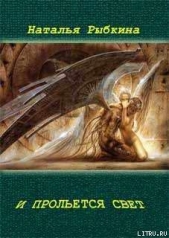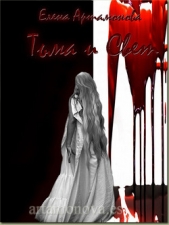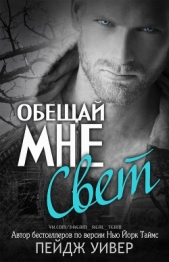На исходе дня. История ночи
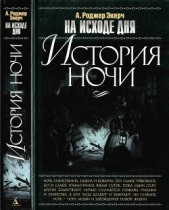
На исходе дня. История ночи читать книгу онлайн
Книга известного американского ученого А. Роджера Экерча "Ha исходе дня. История ночи" перевернула представления человека о темном времени суток. Казалось бы, что может случиться с людьми после заката солнца, когда они отдыхают или спят? Но по убеждению автора, именно ночью происходит много интересного, таинственного и забавного. Ночь — это убежище от обыденности, пора влюбленных, время действий добрых и злых сил. Кто-то отправляется развлекаться на балы и маскарады, кто-то спешит в таверну или кабачок, а кое-кто предпочитает посвящать ночные часы усердной молитве. Под покровом тьмы совершаются и различные преступления — от мелких краж до жестоких убийств. При свете свечей проводят собрания члены тайных обществ и сект. Ночью занимаются сексом, болеют, рассказывают страшные истории, делают записи в дневнике, сочиняют книги, мечтают… Автор подробно описывает ночную жизнь людей разных сословий в странах Европы и Америки в период с XVI и до середины XIX века, когда в мир пришло искусственное освещение, прорезавшее ночную тьму. Наряду с документальными текстами исследователь приводит немало захватывающих, пугающих и комических историй, оставшихся в памяти нескольких поколений.
Внимание! Книга может содержать контент только для совершеннолетних. Для несовершеннолетних чтение данного контента СТРОГО ЗАПРЕЩЕНО! Если в книге присутствует наличие пропаганды ЛГБТ и другого, запрещенного контента - просьба написать на почту [email protected] для удаления материала
42. Jon Butler, "Magic, Astrology, and the Early American Religious Heritage, 1600–1760," AHR 84 (1979), 322.
43. Scott, Witchcraft, 25; Taillepied, Ghosts, 94.
44. Wilson, English Proverbs, 203.
45. Mrs. Bray, Traditions, Legends, Superstitions, and Sketches of Devonshire… (London, 1838), 1,168–169; Kingsley Palmer, The Folklore of Somerset (Totowa, N. ]., 1976), 23; Taillepied, Ghosts, 29,30. См. также: Nashe, Works, 1,358; Brand 1848, III, 52.
46. SAS, IX, 748; Cohens, Italy, 150–151; Roy Porter, "The People's Health in Georgian England," in Tun Harris, ed., Popular Culture in England, c. 1500–1850 (New York, 1995), 139–142; P. E. H. Hair, "Accidental Death and Suicide in Shropshire, 1780–1809," Transactions of the Shropshire Archaeological Society 59 (1969), 63–75; Robert Campbell, "Philosophy and the Accident," in Roger Cooter and Bill Luckin, eds., Accidents in History: Injuries, Fatalities, and Social Relations (Amsterdam, 1997), 19–32.
47. Apr. 16,1769, Diary of Sir John Parnell, 1769–1783,57, British Library of Political and Economic Science, London School of Economics; Christopher Hibbert, The English: A Social History (London, 1988), 348–349.
48. Watts, Works, П, 189; Marsilia Fidno, Three Books on Life, ed. and trans. Carol V. Kaske and John R. Clark (Binghampton, N. Y., 1989), 127; Stanley Coren, Sleep Thieves: An Eye-Opening Exploration into the Science and Mysteries of Sleep (New York, 19 %), 97,185; Lydia Dotto, Losing Sleep: How Your Sleeping Habits Affect Your Life (New York, 1990), 53.
49. VG, Jan. 5, 1739; Dec. 15,1744, С. E. Whiting, ed., Two Yorkshire Diaries: The Diary of Arthur Jessop and Ralph Ward's journal (Gateshead on Tyne, Eng., 1952), 95; 1721, Dec. 26,1713, Oct. 26,1698, East Anglian Diaries, 251,236,208; Heywood, Diaries, II, 302.
50. The True-Born English-man… (London, 1708), 16; New England Weekly Journal (Boston), July 6, 1736; Penry Williams, The Later Tudors: England, 1547–1603 (Oxford, 1995), 216; Thomas, Religion and the Decline of Magic, 17–19; Ruff, Violence, 126.
51. John D. Palmer, The Living Clock: The Orchestrator of Biological Rhythms (NewYork, 2002), 32–34.
52. Edward Burghall, Providence Improved (London, 1889), 155,157,159; WJ, Aug. 14,1725; Helen Simpson, ed. and trans., The Waiting City: Paris 1782–1788… (Philadelphia, 1933), 227; Clifford Morsley, News from the English Countryside: 1750–1850 (London, 1979), 143.
53. Defoe, Tour, 1,308; PG, Nov. 1, 1733; Dobson, Death and Disease, 245.
54. J. W. Goethe, Italian Journey, 1786–1788 (New York, 1968), 347; P. E. H. Hair, "Deaths from Violence in Britain: A Tentative Secular Survey," Population Studies 25 (1971), 5-24.
55. Peter Borsay, The English Urban Renaissance: Culture and Society in the Provincial Town 1660–1770 (Oxford, 1989), 3—11; Christopher R. Friedrichs, The Early Modem City, 1450–1750 (London, 1995), 20–21.
56. Raffaella Sarti, Europe at Home: Family and Material Culture, 1500–1800, trans. Allan Cameron (New Haven, 2002), 109–111.
57. Aug. 16, 1693, Michael Hunter and Annabel Gregory, eds., An Astrological Diary of the Seventeenth Century: Samuel Jeake of Rye, 1652–1699 (Oxford, 1988), 224; Elborg Forster, ed. and trans., A Woman's Life in the Court of the Sun King. Letters ofLiselotte von der Pfalz, 1652–1722 (Baltimore, 1984), 246; Some Bedfordshire Diaries (Streatley, Eng., 1960), 8.
58. June 30,1766, Diary of Mr. Tracy and Mr. Dentand, 1766, Bodl., 14; John Spranger, A Proposal or Plan for an Act of Parliament for the Better Paving Lighting and Cleaning the Streets… (London, 1754); Paul Zumthor, Daily Life in Rembrandt's Holland (New York, 1963), 23–24; Walter King, "How High Is Too High? Disposing of Dung in Seventeenth-Century Prescot," Sixteenth Century Journal 23 (1992), 446–447; James Clifford, "Some Aspects of London Life in the Mid-18th Century," in Paul Fritz and David Williams, eds., City & Society in the 18th Century (Toronto, 1973), 19–38; Sarti, Europeat Home, trans. Cameron, 110–114.
59. Martin Lister, A Journey to Paris in the Year 1698 (London, 1699), 24; Marcelin Defoumeaux, Daily Life in Spain. The Golden Age, trans. Newton Branch (New York, 1971), 63; G. M. Trevelyan, English Social History, a Survey of Six Centuries: Chaucer to Queen Victoria (New York, 1965), 438; G. E. Rodmell, ed., "An Englishman's Impressions of France in 1775," Durham University Journal (1967), 85; Joseph Palmer, A Four Months Tour through France (London, 1776), II, 58–60; Bargellini, "Vita Nottuma," 80; A H. de Oliveira, Daily Life in Portugal in the Late Middle Ages (Madison, Wise., 1971), 101–102,141.
60. Mar. 17, 1709, Sewall, Diary, II, 616; Thomas Pennant, The Journey from Chester to London (London, 1782), 166; June 30, 1666, Pepys, Diary, VII, 188; WJ, Jan. 2, 1725; James K. Hosmer, ed., Winthrop's Journal: "History of New England," 1630–1649 (New York, 1908), II, 355.
61. Burton E. Stevenson, The Home Book of Proverbs, Maxims and Familiar Phrases (New York, 1948), 1686; Cotton Mather, Frontiers Well-Defended: An Essay, to Direct the Frontiers of a Countrey Exposed unto the Incursions of a Barbarous Enemy (Boston, 1707), 14; Oct. 19,1691, Sewall, Diary, I, 283; Vito Fumagalli, Landscapes of Fear: Perceptions of Nature and the City in the Middle Ages (Cambridge, 1994), 136–148.
62. A General Collection of Discourses of the Virtuosi of France, upon Question of All Sorts of Philosophy, and other Natural Knowledge…, trans. G. Havers (London, 1664), 204.
1. Jean Delumeau, La Peur en Occident, XlVe — XVIIIe Siecles: Une Cite Assiegee (Paris, 1978), 90.
2. P. M. Mitchell, trans., Selected Essays of Ludvig Holberg (Westport, Ct., 1976), 51; John Worlidge, Systema Agriculturae; The Mystery of Husbandry Discovered… (1675; rpt. edn., Los Angeles, 1970), 220; Lawrence Wright, Warm and Snug: The History of the Bed (London, 1962), 120.
3. Sara Tilghman Nalle, Mad for God: Bartolomé Sanchez, the Secret Messiah of Cardenete (Charlottesville, Va., 2001), 129; Samuel Rowlands, The Night-Raven (London, 1620); The Ordinary of Newgate, His Account of the Behaviour, Confession, and Dying Words, of the Malefactors Who were Executed at Tyburn, Nov. 7, 1750,10.
4. Marjorie Keniston McIntosh, Controlling Misbehavior in England, 1370–1600 (Cambridge, 1998), 66–67; Jutte, Poverty, 163; F. Alteri, Dizionario Italiano ed Inglese… (London, 1726); Paul Griffiths, "Meanings of Nightwalking in Early Modem England," Seventeenth Century 13 (1998), 213,216–217.
5. OBP, Jan. 15–18, 1748, 54; Midnight the Signal: In Sixteen Letters to a Lady of Quality (n. p., 1779), I, 9, passim; John Crowne, Henry the Sixth, the First Part… (London, 1681), 18; Griffiths, "Nightwalking," 217–238.
6. OBP, May 17,1727, 6.
7. Для знакомства с обширной литературой о преступности в раннее Новое время см.: J. A Sharpe, Crime in Early Modern England 1550–1750 (London, 1984); Joanna Innés and John Styles, "The Crime Wave: Recent Writings on Crime and Criminal Justice in Eighteenth-Century England," Journal of British Studies 25 (1986), 380–435; Ruff, Violence.
8. Kyd, The Spanish Tragédie (London, 1592); Watts, Works, II, 190.
